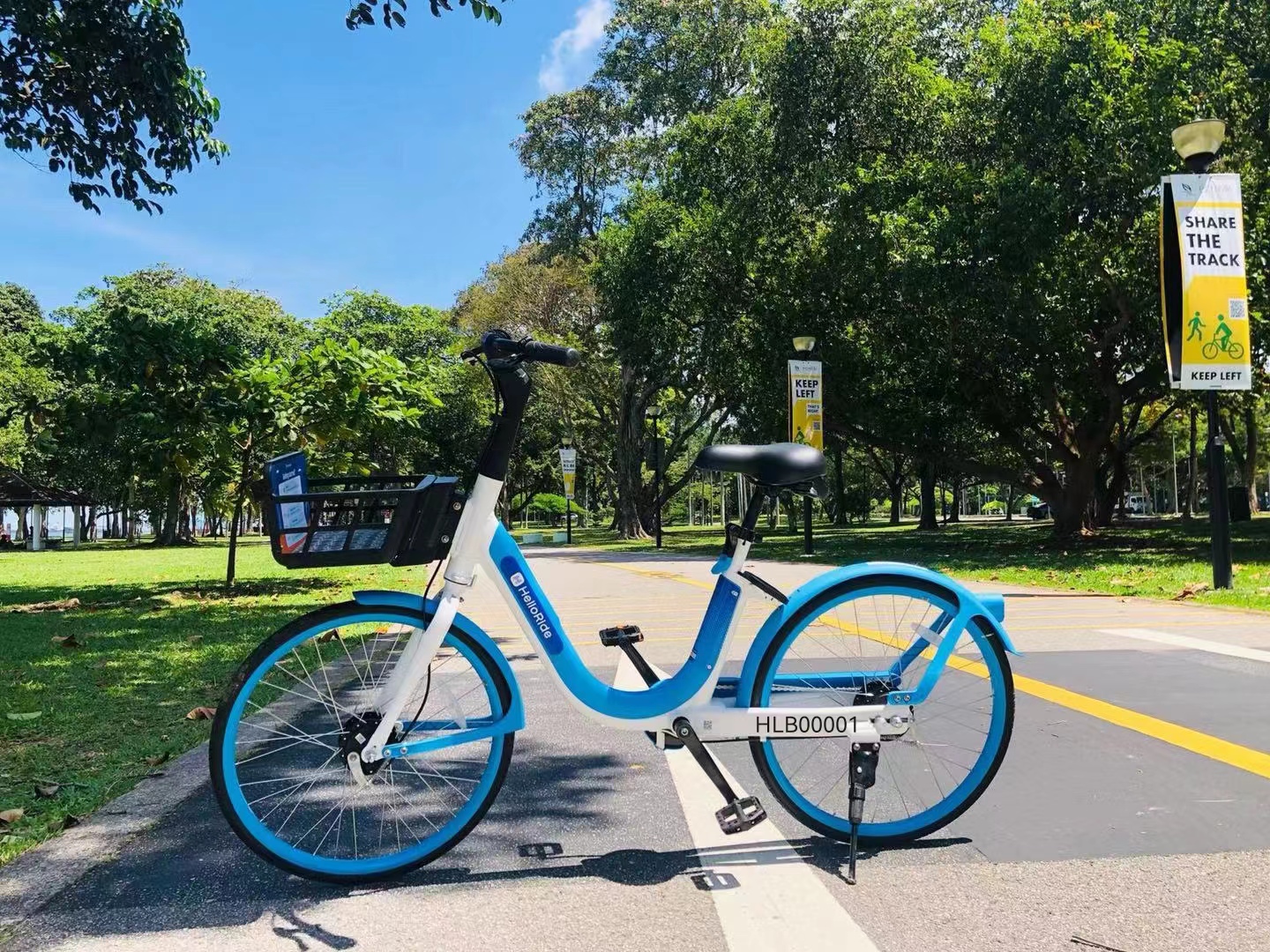Chinese bicycle-sharing firm, HelloRide, enters Singapore
Sign up now: Get ST's newsletters delivered to your inbox

With HelloRide, the total number of shared bikes here stands at 36,000.
PHOTO: HELLORIDE
SINGAPORE - The Land Transport Authority (LTA) has allowed a Chinese bicycle-sharing operator to set up shop here - the first time since China-based players exited the market, leaving a mess of uncollected bikes and unpaid user refunds.
In a statement on Friday (July 1) morning, the authority said HelloRide, a major player in China, has been awarded a Type 2 sandbox licence to operate a fleet of up to 1,000 shared bicycles.
Type 2 licences are valid for up to one year, after which operators need to apply for Type 1 (full) licences that allow them to operate a larger fleet.
LTA said it would evaluate factors such as the applicant's track record and its ability to manage indiscriminate parking and ensure healthy fleet utilisation.
There are currently two other bicycle-sharing operators in Singapore - Anywheel and SG Bike - and both are local players with Type 1 licenses.
With HelloRide, the total number of shared bikes here stands at 36,000.
While bicycle-sharing services are supposed to provide commuters with convenient first- and last-mile commutes, past experiences with such services have been less than rosy.
A slew of Chinese operators began flooding the market with hundreds of thousands of bicycles about five years ago. These bicycles were often strewn about, blocking walkways and ending up in canals.
Occupancy rate was extremely low, and when the players exited Singapore, users were left with unpaid deposits and no recourse.
The LTA has since implemented QR code parking, which can track indiscriminate parking and penalise irresponsible users.
"Since the introduction of the QR code parking system and user ban in January 2019, more than 90 per cent of shared bicycle users now end their trips at designated parking areas," LTA said.
Even so, complaints of strewn bikes are beginning to resurface.
In response to queries from The Straits Times, an LTA spokesman said that in the first half of the year, the authority had received about 257 instances of feedback a month on indiscriminate bicycle parking, down from around 1,300 a month before QR parking was introduced in 2019.
She added that operators are required to impose an additional fee of $5 on users who do not park at designated public parking areas and scan a tagged QR code to end a trip.
“Those who fail to do so three times or more in a calendar year will be banned from using all bicycle-sharing services for at least a month,” the spokesman said, with recalcitrant users facing a ban of up to a year.
As at end-May, more than 2,750 users have been banned, with repeat offenders accounting for around 7 per cent.
- Additional reporting by Lee Nian Tjoe


